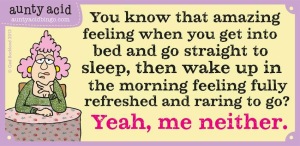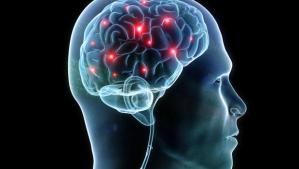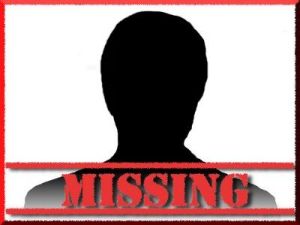 Albert Einstein is credited with saying that the definition of insanity is to do the same things over and over and expect different results. So I have been doing the same things over and over and yes, you’ve guessed it; expected a different set of results. I have let my bipolar disorder rule my life to such an extent I feel at times enslaved by it. I determined through pure strength of will that ‘the next time’ I would not be as bad on each up or down. But strength of will either deserted me altogether leaving me feeling morose, miserable and depressed or left me feeling so full of myself I became a bombastic, arrogant, verbose, pretentious, angry idiot: in other words I just repeated the same old cycle year after year. Expecting that with each ‘recovery’ some miraculous curing would happen and the next time round things would be different, but not actually doing anything other than wishing it, is I suppose the definition of insanity according to Einstein (or whoever!!). But I know I am not insane. Why then, has it taken me over half my life to decide that I can’t continue to do this? I can’t continue to expect different results but change nothing. It seems so simple. Change something, DO something else, try out something else. And yet, year after year, I continued to do the same old things and lamented the fact I was doomed to repeat the same old cycles, blaming it all on this “all encompassing” bipolar disorder.
Albert Einstein is credited with saying that the definition of insanity is to do the same things over and over and expect different results. So I have been doing the same things over and over and yes, you’ve guessed it; expected a different set of results. I have let my bipolar disorder rule my life to such an extent I feel at times enslaved by it. I determined through pure strength of will that ‘the next time’ I would not be as bad on each up or down. But strength of will either deserted me altogether leaving me feeling morose, miserable and depressed or left me feeling so full of myself I became a bombastic, arrogant, verbose, pretentious, angry idiot: in other words I just repeated the same old cycle year after year. Expecting that with each ‘recovery’ some miraculous curing would happen and the next time round things would be different, but not actually doing anything other than wishing it, is I suppose the definition of insanity according to Einstein (or whoever!!). But I know I am not insane. Why then, has it taken me over half my life to decide that I can’t continue to do this? I can’t continue to expect different results but change nothing. It seems so simple. Change something, DO something else, try out something else. And yet, year after year, I continued to do the same old things and lamented the fact I was doomed to repeat the same old cycles, blaming it all on this “all encompassing” bipolar disorder.
If I am to be brutally honest, I don’t know what scares me more; trying something else and it not working, or trying something else and it actually working and then having to take ownership of the fact I left it so long to alter things. My new therapist said to me recently that in the small time we have been working together she has gathered from our conversations/sessions that I ‘pour myself’ into helping people when they are in need. I actually thought that was a very good way of describing it. I go into overdrive when people around me are in need. I do that for everyone except myself. With me, I surrender: I give up without putting up a fight. I am not okay with the fact I have bipolar disorder, my rhetoric will lead anyone to believe I fight against the onslaught of this illness, but when I am ambushed by its symptoms, I don’t do much to help myself because in that moment I can’t. In the ‘in between’, I haven’t done much to help myself either. I certainly educate myself and try to keep abreast of new treatments, but when I am feeling well, I am just that – feeling well. So I put all thoughts of doing other things on the back burner. I know that eventually a swing will come, but life has a way of taking over. My time is filled with other things, other people, places to go, people to see and lots of things to be done – shitloads of stuff to be done. Somehow, I end up way down the priority list.

I would certainly say that life has given me a lemon. Bipolar disorder is a bitter, bitter illness that, if I let it, will rob me of everything that is unique and wonderful and special about me. But I can’t change that fact; ever! I have bipolar disorder, it is incurable, lifelong. For now. So I can continue to rage against this illness in word only, or I can try something different. This therapy is something different. Wonderwoman (nickname for Therapist) is of the opinion that emotional intelligence will stand me in really good stead for all of my life; for all of my dealings with everyone in my life. I happen to agree. Emotional intelligence (EQ) is the ability to identify, use, understand, and manage emotions in positive ways to relieve stress, communicate effectively, empathize with others, overcome challenges, and defuse conflict. I am learning to use emotional reasoning to deal with my anxiety levels. I am learning to come at an issue from the point of view of assertion rather than aggression. I am learning the practical differences between the two and how to cope with my own feelings rather than push them deep down inside of me. I cannot continue to be low on my priority list. Ultimately that is not helping anyone, least of all me.
Instead I am endeavoring to make lemonade with those lemons. I am attempting to do something different. Because staying the same isn’t an option any more.








 pped into freezing cold baths (sometimes for days on end) and only allowed out to the toilet. If that wasn’t bad enough, patients who didn’t respond were subjected to hosing from high-powered jets! Needless to say, this type of treatment was discredited for lack of tangible results.
pped into freezing cold baths (sometimes for days on end) and only allowed out to the toilet. If that wasn’t bad enough, patients who didn’t respond were subjected to hosing from high-powered jets! Needless to say, this type of treatment was discredited for lack of tangible results.
